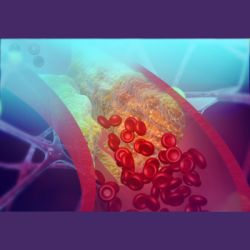An EU-funded
project launched this year will develop a novel, point-of-care, low-cost device
for the screening of thyroid nodules.
Thyroid cancer is a major and growing health challenge with around 300,000 new cases diagnosed worldwide every year. Current methods do not provide sufficient support to surgeons in their decision on the appropriate course of action, which leads to significant number of unnecessary surgeries and a reduced quality of life for patients. This calls for an increased sensitivity and specificity of the conventionally applied screening process.
The EU-funded project Laser and Ultrasound Co-analyser for Thyroid Nodules (LUCA) aims to develop a new, low-cost device that will provide doctors with enhanced information required to provide better and more specific results in thyroid nodule screening and enable better diagnosis.
“The device combines ultrasound and near-infrared diffuse optical technologies in a single device and a probe. By combining information about tissue hemodynamics, chemical constitution as well as anatomy, it will overcome the shortcomings of present techniques while screening for malign thyroid nodules. If successful, this will save millions of euros over the coming decades and improve the lives of millions of Europeans”, said Prof. Turgut Durduran from ICFO- The Institute of Photonic Sciences (Castelldefels, Spain), Scientific Coordinator of LUCA.
A multidisciplinary team comprising eight partners including clinical endocrinologists, radiologists, physicists, engineers and industry players will carry out this ambitious research project. Phase 1 of the project will be focused on the development and construction of device components, while phase 2 will see the implementation and clinical validation of the LUCA demonstrator.
“A new tool made concomitantly with thyroid ultrasound may provide additional information to help us distinguish between benign and malignant nodules. This would allow a reduction in the number of surgeries for these reasons and would have an important socio-economic impact, diminishing the number of surgeries and the associated comorbidities, as well as improving the quality of life of the patients affected”, added Dr. Mireia Mora from the August Pi i Sunyer Biomedical Research Institute (IDIBAPS) in Barcelona, Spain, which will be responsible for the clinical application of the tool, under the direction of Prof. Ramon Gomis.
The LUCA device has the potential to represent a very innovative tool for other types of cancer diagnosis, screening and therapy monitoring in areas of the body accessible to both techniques. Therefore, LUCA is expected to have a significant impact not only in the field of thyroid cancer but also in additional areas of cancer screening.
The LUCA project started on 1 February, 2016 and, for a four-year period, will bring together recognised organisations and industry partners from all over Europe: ICFO (Scientific Coordinator); Politecnico di Milano, IT; IDIBAPS; Hemophotonics SL, ES; Vermon SA, FR; ECM – Echo Control Medical, FR; University of Birmingham, UK; European Institute for Biomedical Imaging Research, AT (EIBIR).
The LUCA project receives funding from the European Union’s Horizon 2020 research and innovation programme under grant agreement No 688303 and is an initiative of the Photonics Public Private Partnership.



























